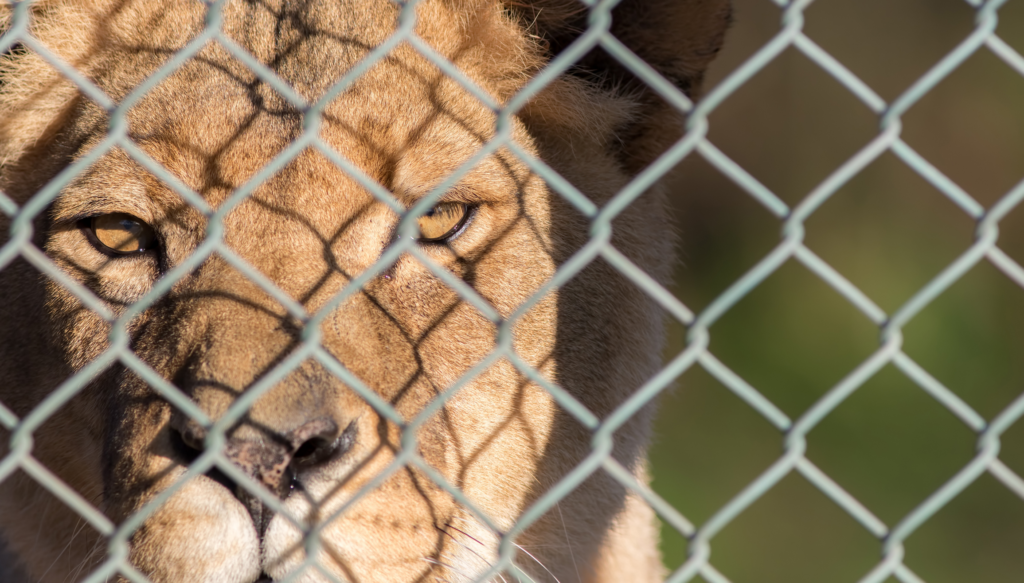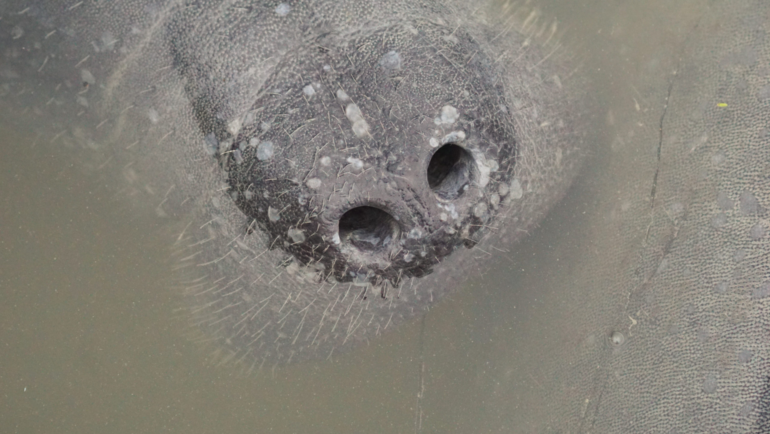You can’t look away from the gun spinning, threesome cowboy wedding, big cat madness that is Tiger King. Following its March 20th release, over 34 million viewers watched this Netflix docuseries, in just the first ten days alone. Netflix couldn’t have timed a better debut than during a global pandemic.
Yes, I was one of those 34 million people. Heck, I was that person who rewatched all seven episodes for two times the Tiger King. Let’s get real, it’s captivating. The characters alone reel you in and have you binging every episode. Plus, the story is almost too crazy to believe. I needed to see it twice to help me process all the mayhem.
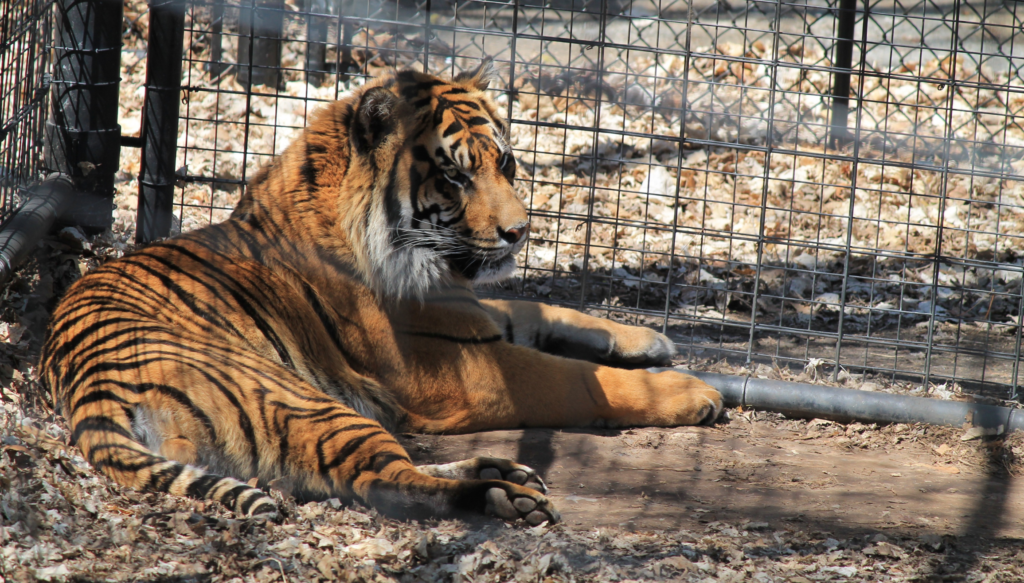
With tens of millions of people tuning in there is a staggering number of people paying attention, and for many, it really hit a nerve! Whether you’ve watched it or not, you probably have seen the memes and you know that folks are still buzzing about Tiger King. But I think we can also agree the focus remains on the eccentric characters, leaving the horrid treatment of animals to fall to the background. But, I think we need to roll up our sleeves and dive into the issues that really matter.
Documentary or Mockumentary
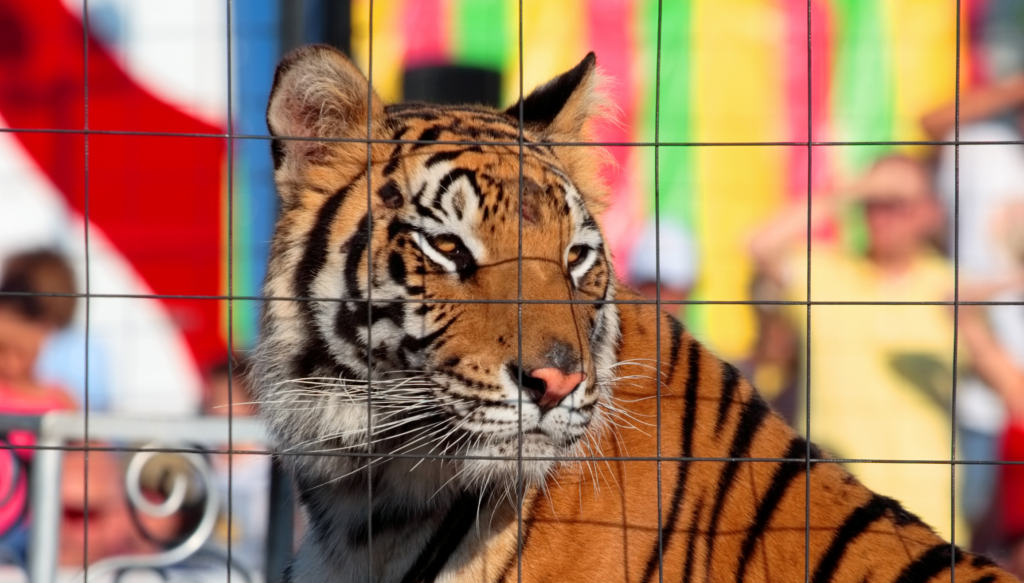
Tiger King does bring needed attention to the cruel exotic pet trade, cub petting, and the horrid mistreatment of wild animals in the United States. But it left the spotlight on the cast of criminals instead of shining on the true madness that occurs to these animals. In its place, the focus was drawn on murder, drugs, and hatred. I won’t say I’m surprised; Netflix didn’t buy this documentary in hopes of ending big cat ownership. They bought it to boost views and to capitalize financially. I get it; Tiger King is wildly entertaining to watch. I just hope that people were also left wildly disturbed by the disgusting animal exploitation.
Yes, I roll my eyes every time I see a TikTok with people dressed up as Joe Exotic lip-syncing “Savage Tiger King Edition,” and I cringed when Netflix released a sing-a-long version of “I Saw A Tiger” on their YouTube. They even added a bouncing tiger emoji for you to follow along with… As a result, the focus landed far from the real issue, but I am confident that important conversations are making headway the more this crazy documentary is discussed.
Cub Petting and Tiger Selfies
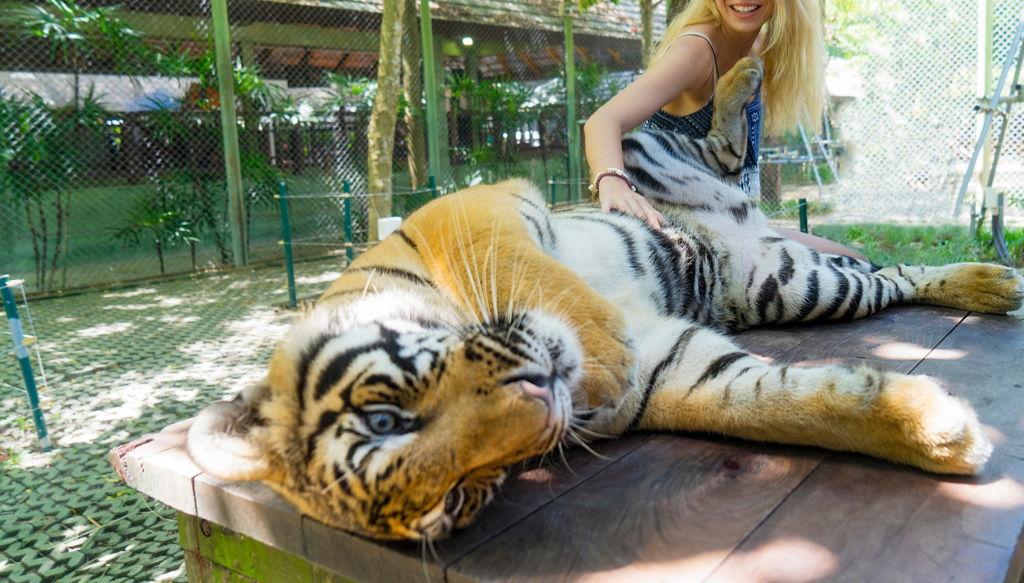
Our country has a serious animal welfare problem, one that poses a real danger to both animals and people alike. Watching as newborn cubs were pulled from their mothers, just to expedite the profits they could produce was sickening. Only minutes old and these babies were viewed as profit, treated as props to simply rake in more money. As cubs, they are handed from stranger to stranger for petting and photo ops. I can’t un-see the scene where Joe Exotic zips through a paying crowd holding a tiny cub, pausing for just a quick second at each person’s face as the camera snaps. This scene is their reality and really demonstrates the brief “shelf-life” of these big cats. Once they’ve outgrown their cuddliness, they are quickly discarded or even destroyed. This neglect and abuse is utterly appalling, but the backbone supporting this cycle is… paying customers! If it weren’t for the lines of people thrilled to fork over big bucks to say “cheese” while holding a tiger cub, there would be no Tiger King. Paying customers drive this industry, which means that the public can help end these practices by making informed choices instead. If people stopped supporting these places, then the cash flow would dry up causing the mass breeding to end.
Joe Exotic
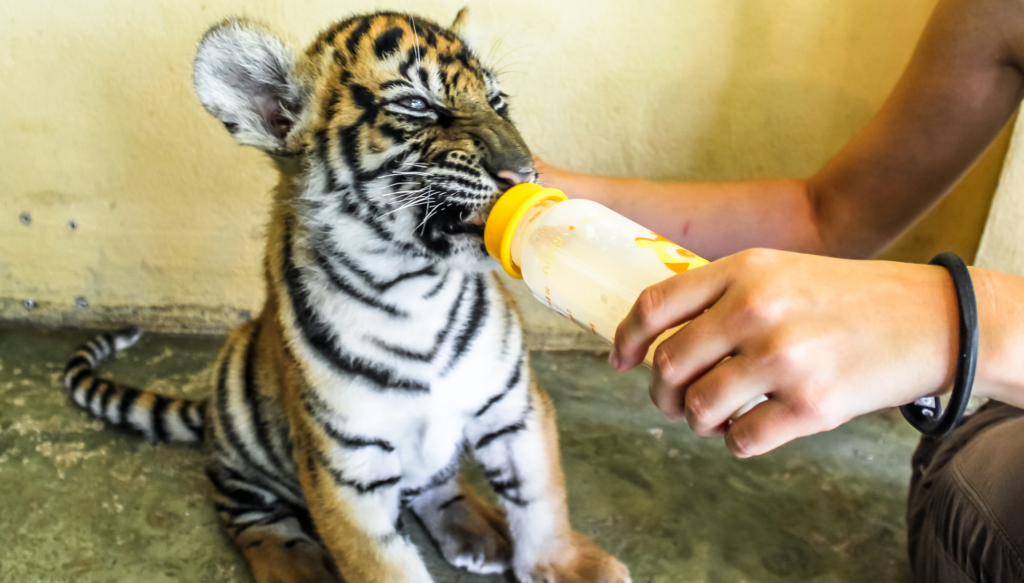
Never in a million years would I have dreamed (or wanted) for Joe Exotic to become a household name. I’ve known about Joe Maldonado-Passage and his zoo in Wynnewood for years and years. In college when I lived in Wichita, Kansas I was just a short three-hour drive away. Still never paid a visit, I didn’t need to. Seeing this roadside dump in person wouldn’t have changed my opinion of their cruel practices. To be frank, I am thrilled that Joe is in jail. I believe he absolutely deserves his 22-year sentence for violating the Endangered Species Act and engaging in a murder-for-hire plot. He made his animals live in a reoccurring nightmare. GW Zoo existed to profit off those animals. So, the fact that Joe Exotic is a household name, and will likely be the trending Halloween costume of 2020 does boil my blood quite a bit.
Ligers and White Tigers
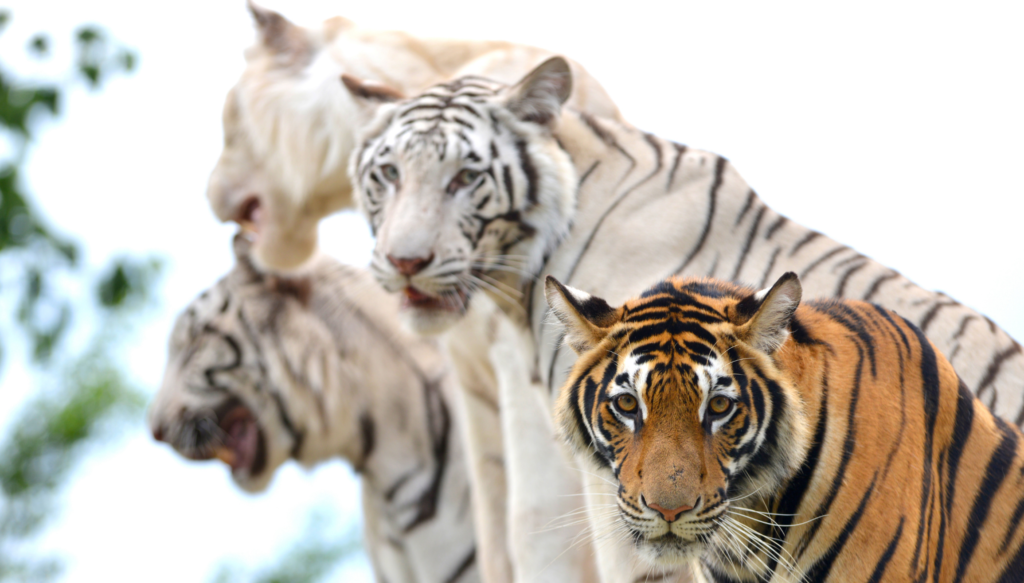
I do not support the crossbreeding of animals to produce individuals like ligers. The reality is these hybrids are bred to act as novel freaks to entertain paying customers. The same can be said for white tigers and other color mutations. Thanks to magicians, Siegfried and Roy for commercializing these non-natural colors, white tigers are bred and inbred to produce these desirable traits for pure revenue. But like any inbred animal, ligers and white tigers are known to suffer serious congenital defects that require lifetime care. Care that is often denied by the unqualified people who continue to own them just for the sake of saving money and increasing profits.
Roadside Zoos
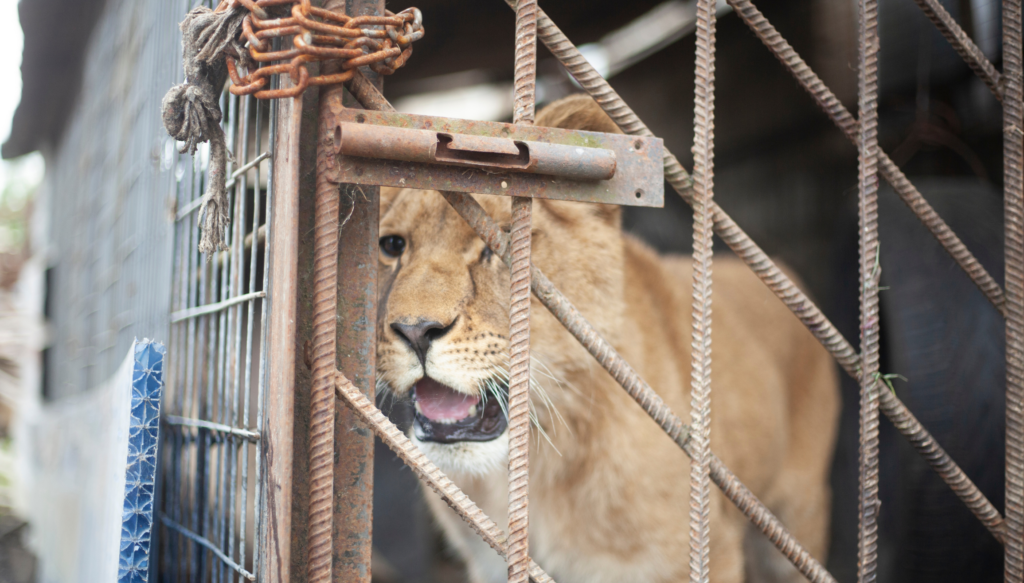
I’ve visited plenty of private roadside zoos all over the country. I don’t enjoy seeing these travesties, but experiencing them firsthand has given me perspective on how inhumane they really are. I’ve seen social primates in isolation, bears pacing endlessly back and forth for hours, and big cats stuck in cages no bigger than a bedroom. Roadside attractions like these are often riddled with safety concerns for both the public and animals; let alone starving the animals of their natural wild behaviors. Do not support these nightmares, avoid roadside menageries.
Carole Baskin
No, I’m not here to talk about her ex-husband, or her feud with Joe Exotic; all of that just created noise that drowned out the real issue in Tiger King. Whether you like her or not, Carole has provided dozens of wild cats forever homes at her facility. Unlike the other individuals in Tiger King, Carole does not breed or exploit any of the rescued animals. Big Cat Rescue is accredited by The Global Federation of Animal Sanctuaries and is a part of the Big Cat Sanctuary Alliance. Putting Carole’s wild quirky personality, let’s be honest she is helping to solve the problem of private big cat ownership. Which is something that I can get behind 100%!
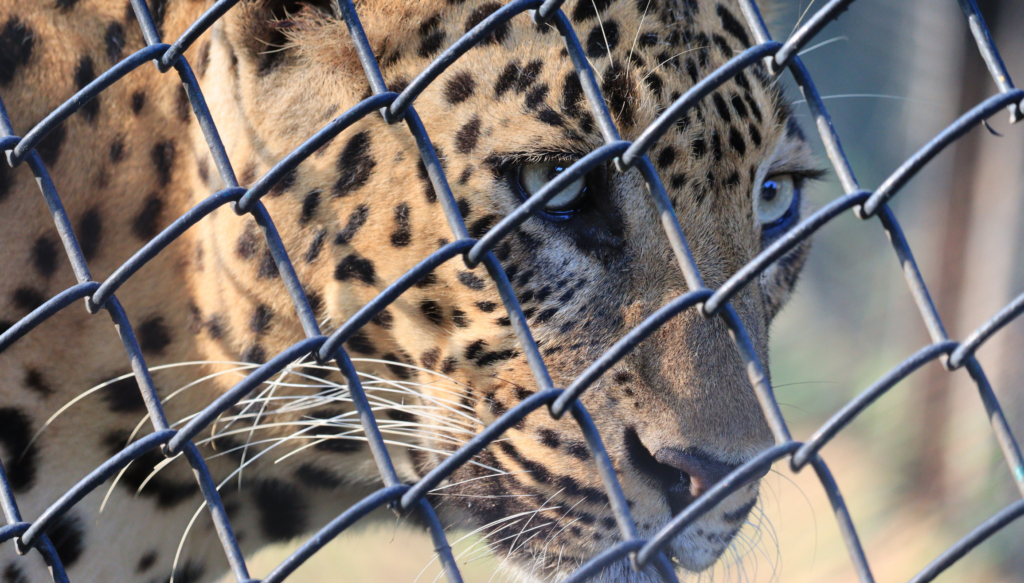
Wildlife Sanctuaries
True wildlife sanctuaries rescue animals in need of homes; often unwanted pets, animals from the entertainment industry, or victims of the illegal wildlife trade. Proper sanctuaries provide these animals with forever homes in which they can live out the rest of their lives in natural environments with quality animal care.
What true sanctuaries DO NOT do is breed, sell or trade animals. And they do not allow hands-on contact with wild animals or force animals to perform.
I recommend using The Global Federation of Animal Sanctuaries as a source for identifying quality wildlife sanctuaries. In fact, one of these accredited sanctuaries; The Wildcat Sanctuary in Minnesota has made quite the stir following Tiger King’s popularity. They are offering amnesty to anyone willing to surrender their big cat until their habitats are at capacity, no questions asked. The Wildcat Sanctuary’s mission is to rehome and provide sanctuary for as many cats as possible. That is what proper accredited sanctuaries are made of!
Private Ownership
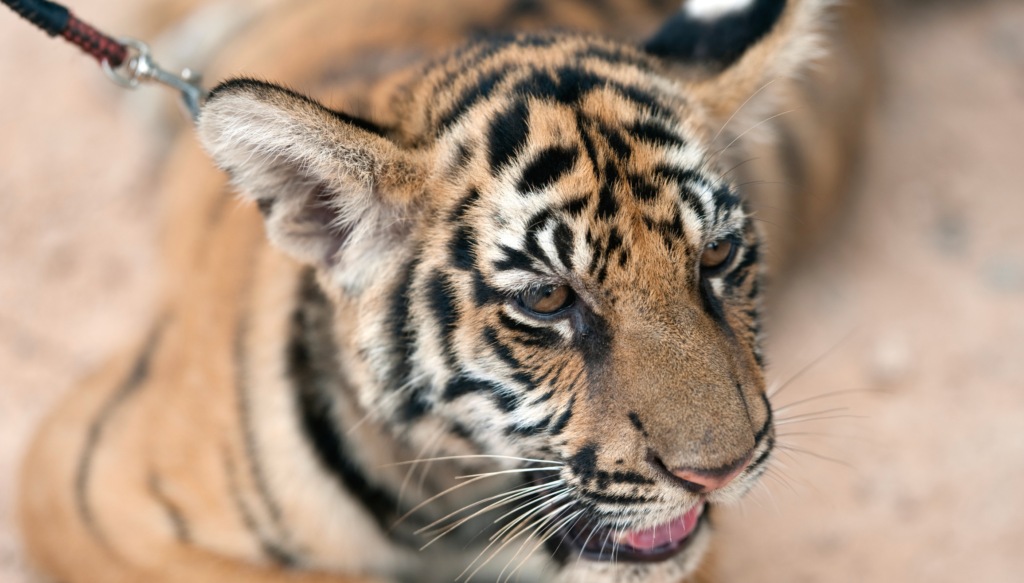
I fully oppose private ownership of dangerous exotic animals and the illegal and unethical trade that it supports. I find it shocking there are zero federal laws regulating the private ownership of wild animals. All that exists is a patchwork of state regulations where private ownership is loosely regulated. Five states still remain with no laws and regulations around ownership of big cats and other exotic pets. The reality is dogs, cats, and other domestic animals receive much more regulation than big cats, bears, primates, and other exotic animals in private ownership. Instead of being regulated, they are ruthlessly commercialized by unscrupulous people with damaging consequences.
Together we can change this sad reality. The power lies within the actions and choices each of us takes! Here is how you can help make everyday life for wildlife:
Take Action for Wild Animals
- Skip the Cruelty: Do not visit roadside zoos, county fairs, festivals, or other attractions that involve exhibiting exotic animals
- Stop the Selfie: Do not get your photo taken with an exotic animal, and definitely don’t pay to hold, pet, ride, feed, or swim with an exotic animal
- Share Responsibly: Avoid sharing social media posts that promotes “cuddling” or having wild animals as pets
- Say No to Animal “Actors”: Choose movies, TV shows, circuses, and other live entertainment that does not include trained exotic animals
Take Political Action:
Join me in support of the Big Cat Public Safety Act. This act aims to create a federal overarching law on big cat ownership that would prohibit hands-on contact with tigers and other big cats, while also prohibiting their breeding within the private sector.
Still craving more information? Check out the Big Cat Sanctuary Alliance’s “Ten Things You Need to Know about Captive Big Cats”
